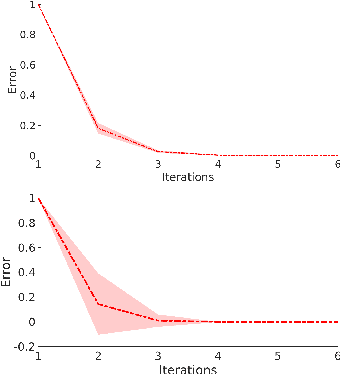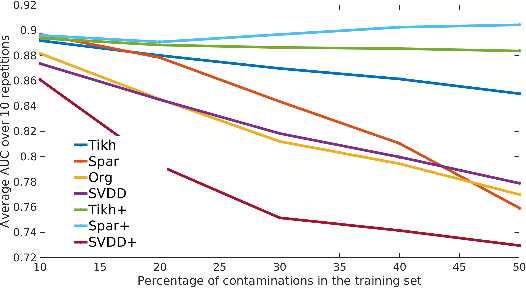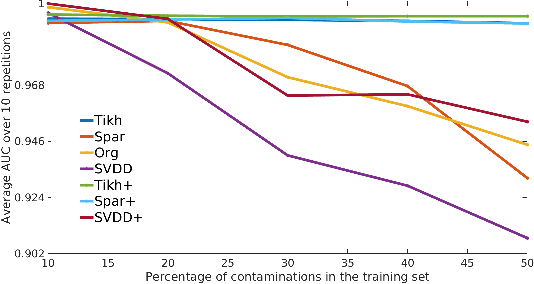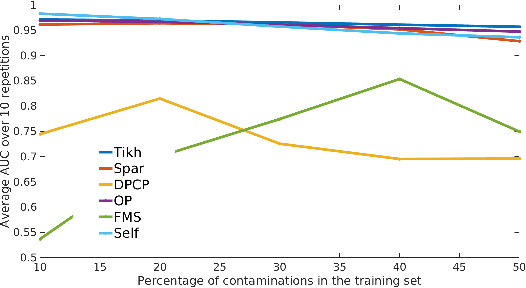Robust One-Class Kernel Spectral Regression
Paper and Code
Feb 06, 2019



The kernel null-space technique and its regression-based formulation (called one-class kernel spectral regression, a.k.a. OC-KSR) is known to be an effective and computationally attractive one-class classification framework. Despite its outstanding performance, the applicability of kernel null-space method is limited due to its susceptibility to possible training data corruptions and inability to rank training observations according to their conformity with the model. This work addresses these shortcomings by studying the effect of regularising the solution of the null-space kernel Fisher methodology in the context of its regression-based formulation (OC-KSR). In this respect, first, the effect of a Tikhonov regularisation in the Hilbert space is analysed where the one-class learning problem in presence of contaminations in the training set is posed as a sensitivity analysis problem. Next, driven by the success of the sparse representation methodology, the effect of a sparsity regularisation on the solution is studied. For both alternative regularisation schemes, iterative algorithms are proposed which recursively update label confidences and rank training observations based on their fit with the model. Through extensive experiments conducted on different data sets, the proposed methodology is found to enhance robustness against contamination in the training set as compared with the baseline kernel null-space technique as well as other existing approaches in a one-class classification paradigm while providing the functionality to rank training samples effectively.
 Add to Chrome
Add to Chrome Add to Firefox
Add to Firefox Add to Edge
Add to Edge